Abe's anti-China attempt at G7 summit futile
Updated: 2015-06-09 09:34
(Xinhua)
|
||||||||
BEIJING -- Japanese Prime Minister Shinzo Abe's attempt to arouse concern over the South China Sea issue at the Group of Seven (G7) summit in order to forge a unified anti-China stand is futile.
The ongoing summit is mainly focused on the Ukraine crisis, climate change, among others. However, Abe digressed from the main topics of discussion and preached about South China Sea disputes and the so-called China's attempts to change the status quo by force.
Japan is not among the claimant states in the South China Sea issue. Its interference in the disputes aims to divert Beijing's attention and resources from the East China Sea, where China-Japan tension over the Diaoyu Islands has been rising.
This is not the first time that Japan has used the G7 platform as a tool to serve its own selfish interests and purposes.
During the last G7 summit held in Brussels, Japan also attempted to sell its anti-China agenda. However, the Western countries wisely rejected the pro-Japan stand over the East China Sea.
This time, Abe will probably feel disappointed again as his efforts to build up pressure on China under the multilateral framework are counterproductive.
Firstly, China has indisputable sovereignty over the Nansha Islands and the adjacent waters in the South China Sea and the construction works there are reasonable and lawful.
China is a staunch proponent of peace and stability in the Asian-Pacific region and the world, and is committed to resolving disputes through negotiation with directly concerned countries.
Secondly, some G7 members, like Germany and France, have important bilateral relations with China, which makes it impossible for them to get embroiled in Abe's trick.
As the European countries in the G7 had already applied for membership of the China-led Asian Infrastructure Investment Bank, they are more interested in the inclusion of the Chinese currency renminbi in the International Monetary Fund's Special Drawing Rights currency basket than in the South China Sea issue.
Meanwhile, with the G7's global influence becoming less prominent, it is doubtful whether the bloc still has a great say as Japan expects in international affairs.
Thus, Abe is biting a file in making use of the G7 summit to form an anti-China alliance.
It is advisable that the other members of the bloc should guard against Tokyo's selfish moves so as not to allow Japan to kidnap their own interests.
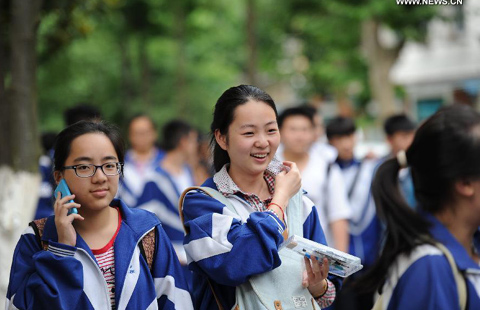
 National college entrance exam ends in most parts of China
National college entrance exam ends in most parts of China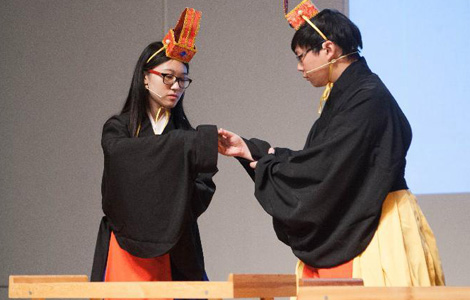
 Peking University opens Chinese traditional art courses
Peking University opens Chinese traditional art courses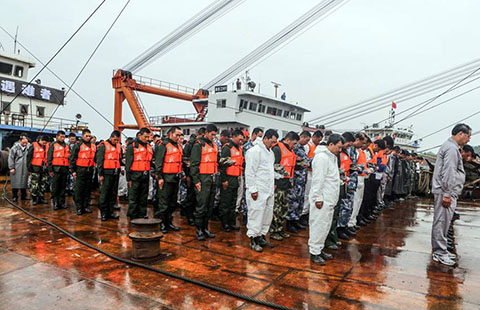
 Rescuers mourn victims on seventh day since Eastern Star disaster
Rescuers mourn victims on seventh day since Eastern Star disaster
 Rescuers enter Eastern Star hull in search efforts
Rescuers enter Eastern Star hull in search efforts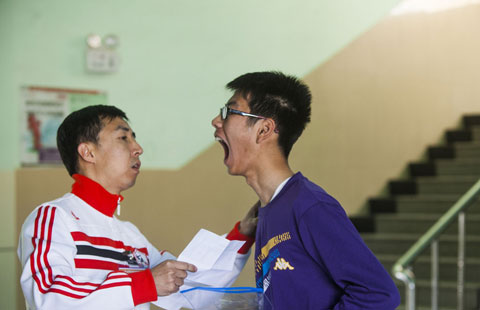
 Gaokao held across China
Gaokao held across China
 Man sues actress for staring at him
Man sues actress for staring at him
 Students prepare to take national college entrance exams
Students prepare to take national college entrance exams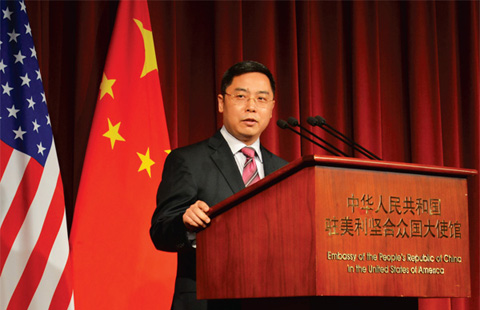
 Across America (May 29- June 4)
Across America (May 29- June 4)
Most Viewed
Editor's Picks

|

|

|

|

|

|
Today's Top News
China gives its yuan to Broadway
Questions remain unresolved in the cruise ship disaster
Escaped New York prisoners may have had help from staff
Memphis hospital adds new China affiliate
Police alerted over forbidden photo shoot
Heavyweight Zhang wins unanimous decision
China mourns Yangtze shipwreck victims as search continues
China signs $50m agreement with FAO to support developing countries
US Weekly

|

|






